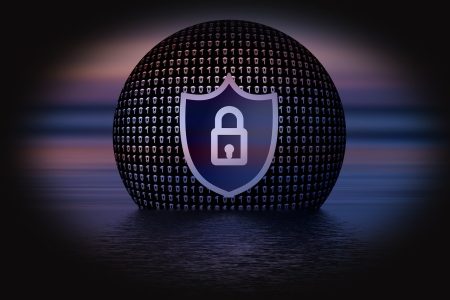A VPN can protect your privacy and prevent your internet activity from being tracked. Without a VPN, your web browser and internet service provider can track your movements and search history to your IP address. When you use a VPN, your data will not be visible to these companies. In addition, a VPN can protect your identity and prevent hackers from accessing private information. There are many benefits to using a VPN, and here are 7 of them.
OpenVPN function
The OpenVPN function is one of the main functions of a VPN. It enables a remote user to access the network through a secure tunnel without interfering with local traffic. An OpenVPN connection’s performance depends on several factors, including network speed, router CPU speed, and memory. In addition, encryption cipher, key size, and compression algorithm are some factors that affect performance.
To operate a VPN on arbitrary ports, OpenVPN uses TCP, which disguises VPN traffic as ordinary traffic. For example, a VPN connection using port 443 will be treated as regular HTTPS traffic, bypassing corporate networks and proxy servers. This can be a major benefit if you need to access the Internet through a local network. However, OpenVPN clients must be configured correctly to use the service.
Encryption
When choosing a VPN, the encryption provided by it is crucial. Generally, encryption is provided using a cipher. While RSA is commonly used, there are also a variety of other ciphers. For example, RSA is a widely used cipher for securing online communications, and most VPN providers use it as part of their encryption handshakes. Because of this, however, it is not recommended for use directly for encrypting user data. Instead, some security experts recommend that you opt for a higher-bit RSA key for your data.
Encryption is essential for ensuring the privacy and safety of your data while using the Internet. A VPN routes your connection through a remote server and encrypts the data in transit. Since many people use multiple devices to connect to the Internet at the same time, it is a good idea to choose a VPN service that allows protection for as many devices as possible simultaneously. Some VPN providers offer multi-device protection, so if you’re connecting to the Internet on a laptop, tablet, or smartphone, you can purchase a VPN for each one.
Location-based security
VPNs are beneficial for several reasons, including hiding your location and network information. You may want to conceal your location online for employment reasons or personal privacy. VPNs can hide your location to keep you safe from punishment.
Login limits
There are two basic types of login limits: realm limits and session limitations. Usually, a realm limit sets the maximum number of concurrent users a user may have. A user may have multiple sessions; if he logs in from two machines within the same realm, an additional session will be created for each. These sessions will count against the user’s license. However, users entering a realm with a session limit must have fewer than the maximum number of sessions. Otherwise, the user will receive an error message, and they may be unable to log in. The session-related SSO attributes are stored in the respective session cache and will not be shared with other sessions.
A user may also specify the number of login sessions allowed in the VPN. A server that supports multiple sessions can be configured to prevent unauthorized logins. The Authentication Policy typically sets the maximum number of sessions per user. It can be changed via the CLI or through an explicit configuration. To change the number of login attempts, run VPN-simultaneous-logins and enter a value between two and four thousand.
Securing against DDoS attacks
Securing against DDoS attacks can be difficult, but it is possible. You can connect to a secure server without exposing your network by using a VPN. In addition to using a VPN, your internet connection is encrypted to prevent hackers from reading your passwords. You can also limit the number of links made concurrently or from one IP address. You can also set a DDoS policy to allow only a certain number of connections from a single IP address.
DDoS attacks are typically motivated by monetary reasons. The perpetrators try to extort a large sum of money (often bitcoin) in exchange for access to the targeted network. Additionally, DDoS attacks can impact the performance of popular games, putting people at a disadvantage or even losing the game. Consequently, securing against DDoS attacks is essential for online gamers.
Here is the list of top VPNS
1. ExpressVPN
Renowned for its blazing-fast speeds and robust security features, ExpressVPN is a top contender in 2024. With a vast network of servers in 94 countries, it ensures a smooth and unrestricted browsing experience. Its user-friendly interface, strong encryption, and strict no-logs policy make it a favorite among privacy enthusiasts.
2. NordVPN
NordVPN stands out with its exceptional security protocols and vast server network. Its Double VPN feature adds an extra layer of protection by routing your connection through two servers. NordVPN also offers specialty servers for specific needs, such as P2P sharing and Onion Over VPN, making it a versatile choice for various online activities.
3. Surfshark
Surfshark is an excellent budget-friendly option without compromising on quality. It allows unlimited simultaneous connections, making it ideal for families or multiple devices. With advanced features like CleanWeb (ad and malware blocker) and Whitelister (split tunneling), Surfshark provides comprehensive protection and flexibility.
4. CyberGhost
CyberGhost offers a user-friendly experience with dedicated profiles for different activities, such as streaming, torrenting, and browsing. Its extensive server network ensures reliable performance, and the strict no-logs policy guarantees your privacy. CyberGhost’s transparency and commitment to security make it a trustworthy choice.
5. Private Internet Access (PIA)
PIA is known for its strong commitment to privacy and open-source software. With a large server network and advanced security features, it delivers reliable performance for all your online needs. PIA’s customizable settings and affordable pricing plans make it a great option for tech-savvy users and beginners alike.
6. ProtonVPN
From the makers of ProtonMail, ProtonVPN emphasizes security and privacy above all. It offers a free tier with no data limits, making it accessible for those on a budget. ProtonVPN’s Secure Core architecture routes traffic through multiple servers, providing an extra layer of security and making it a top choice for privacy-conscious users.
Choosing the right VPN can significantly enhance your online security and freedom. The best VPNs offer a range of features tailored to different needs and budgets. Evaluate your requirements, explore these top picks, and take the first step towards a safer and more private internet experience.








